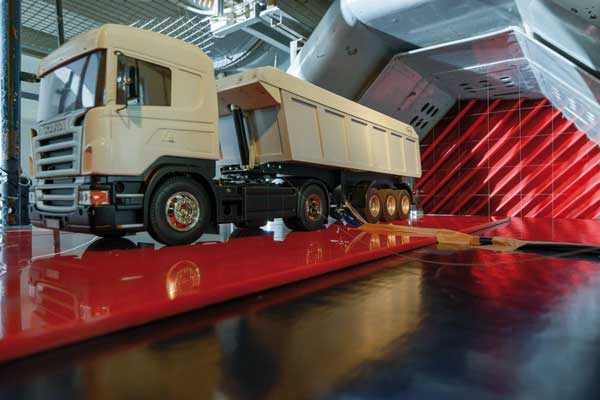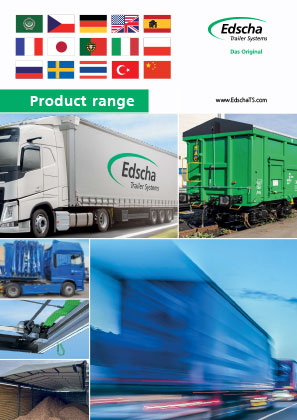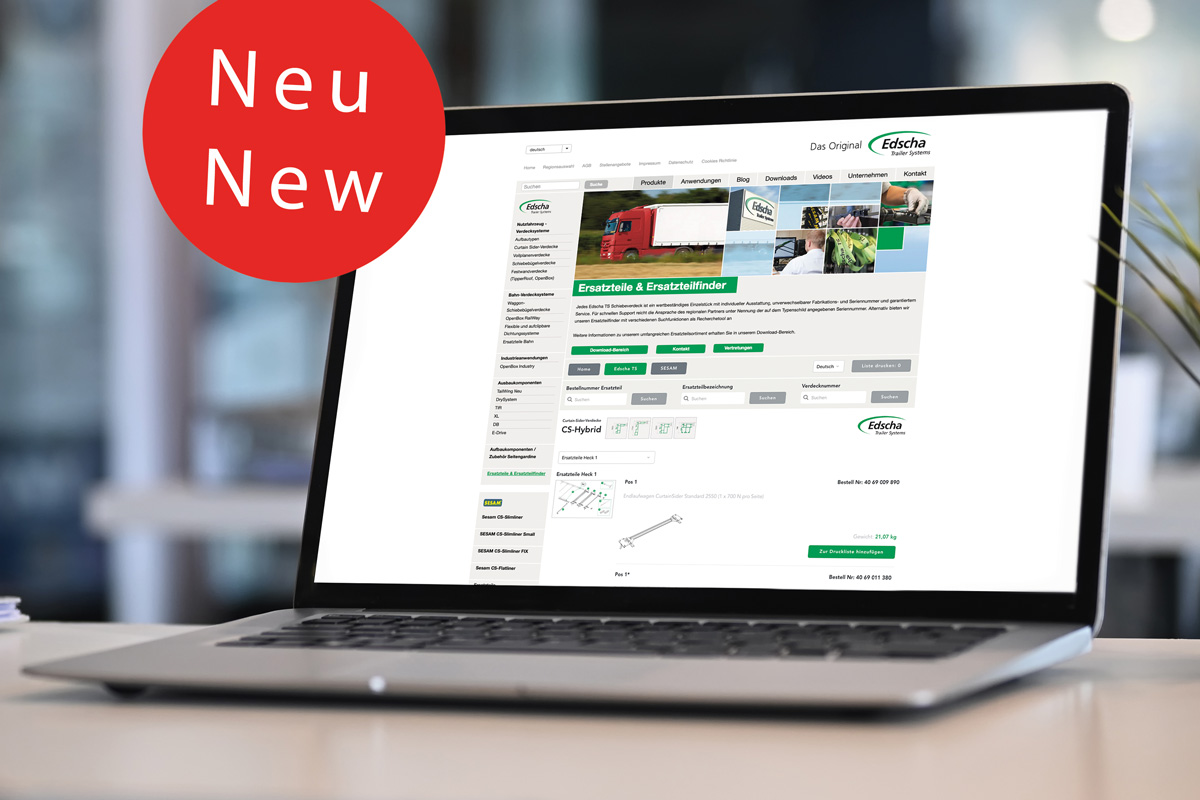When it comes to vehicle tyres, bear in mind these are more than simply round, black things on the bottom of your vehicle.
Dumper trucks carry heavy loads and are often driven at high speeds - factors that place considerable stress on the tyres. Overloading the vehicle is one way to cause tyre damage - so don't exceed the recommended maximum load. Another aspect of relevance is tyre pressure. Tyre pressure tables often only take average loads into consideration. If the load is too heavy or the pressure insufficient, tyres will be exposed to excessive creep and flexure, resulting in damage to them. And if tyres are inflated too much, the internal textile fibres can be affected. They can no longer bear the load properly, and the material of the tyre flank becomes fatigued and fissures develop. Different speeds will be required depending on whether the truck is being driven on a road or a site, and so different tyre pressures will be needed. Essentially, the aim is to have the lowest possible tyre pressure that is required for the job. As a rule of thumb, the lower the tyre pressure, and the better and larger the tyre area, the less likely it is that a tyre will damage the ground.
The human factor
Irrespective of what technology you employ, when it comes to outgoings, the main driver of costs is the driver. The driver's handling of the vehicle will determine the consumption of fuel during a run. This can be influenced by his mood, whether he is a careful or aggressive driver, and his ability to use the correct technique when driving on a construction site or when generally out and about. But route planning is also an aspect as is that of use planning of tippers, while they can also be out of action because they have not been correctly maintained. In short, appropriate management will make things easier, more relaxed, safer and, of course, less expensive.
Convenient, safe and cost-effective
The word has spread that use of a state-of-the-art sliding roof concept, such as TipperRoof, can save both time and money. With TipperRoof in place, it is possible to dump a load with the roof closed, while it is storm-proof and compatible with nearly all dumpers so that these can readily be retrofitted with the system. An additional investment in the electrical E-Drive system will provide for fully automatic opening and closing of the sliding roof so that it is no longer necessary to do this by hand and it becomes easier for drivers to more rapidly and readily load and unload a dumper. And a contented driver will also result in reduced costs.

A sliding roof that reduces fuel consumption? Is that possible?
Actually, it is! The OpenBox sliding roof concept by Edscha TS is the ideal solution for all solid wall trailers and does more than just secure and protect the load. Extensive wind tunnel and field trials have demonstrated that the aerodynamic effect can result in fuel savings. This aerodynamic effect of the OpenBox system means that there is less wind resistance and that alone is enough to cut fuel consumption.
The robust construction is perfect for use in many different applications. The agricultural sector, for example, is a case in point where the need to transport larger loads and thus the demand for suitable up-to-date vehicles means that the OpenBox concept will become an indispensable logistical feature in this connection.
So, to save money, make sure you keep an eye on the details
To cut your costs, rely on Edscha technology and play it safe in the tough world of transport. Standard trailer covers can conceal hidden costs - reason enough to look underneath at what is not immediately apparent!






